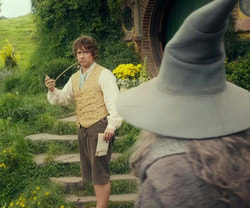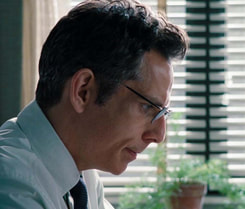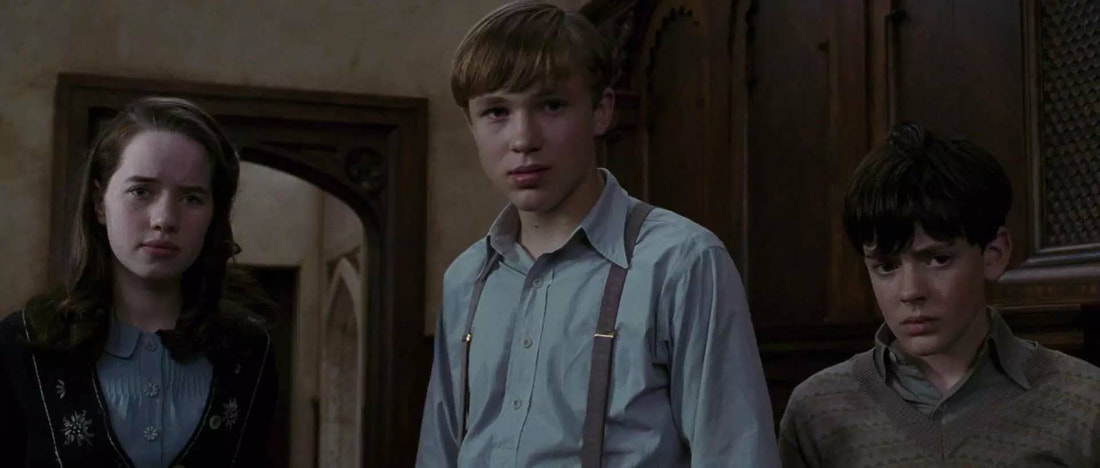|
Life is a series of choices. Some are big choices, like who to get married to. Others seem small, like what to have for breakfast. Porridge? Or perhaps an egg-free tofu omelette. All these choices, big and small, have led you to this moment. They’ve had on impact on your education, career, health, and relationships. One choice leads to opportunities for more choices and pretty soon you can look back on your life as a long string of decisions. This is your story, almost as if you were a character in a book. And it all starts somewhere. But before each stage of your story can really begin, you must make an important choice. It's the choice of how to respond to what Joseph Campbell entitles "the call to adventure." In Campbell’s description of the hero’s journey, the call to adventure is where everything takes off. Our main character receives a revelation. Perhaps they discover that a whole other world exists, an unknown world "of both treasure and danger." It’s an exciting place, but also unpredictable. And so like Neo in The Matrix, they come to a crossroads. The blue pill or the red pill. It is the choice of whether to continue being comfortable with what they know, or to take a chance and step out into the unknown. 
Why would anyone ever leave what they know in order to be uncomfortable? That doesn’t sound very relaxing. Or safe. And more importantly, what would the neighbours think? Bilbo Baggins deals with those exact concerns in J.R.R. Tolkien’s The Hobbit. The Bagginses are seen as "very respectable" in large part "because they never had any adventures or did anything unexpected." But when Gandalf and his throng of dwarves show up on the doorstep for an evening of telling tales about the battles and treasures of faraway lands, something awakens inside Bilbo’s heart. He realizes there’s more to life than tea, buttered scones, and seed-cakes at Bag End. There’s a whole other world out there, and it starts at the little road just outside his front door.
Adventure implies risk. The word adventure comes from Old French and etymologically speaking means "that which happens by chance, fortune, luck" and "to risk the loss of." As Bilbo later says, "It's a dangerous business, Frodo, going out of your door . . . You step into the Road, and if you don't keep your feet, there is no knowing where you might be swept off to." Bilbo is right to feel inadequate and unprepared at the beginning of his journey. The dwarves employ him as a "burglar" when in reality he’s nothing of the sort. A respectable hobbit doesn’t burglarize anybody, especially not piping-mad dragons. But the call to adventure isn’t about following your everyday routine and sticking with what you’ve done before. It’s about applying yourself to the task set before you, despite your inadequacies. It’s a leap into the new, which plunges Bilbo into a new role and identity.

Deciding to take that leap is a big moment in the 2013 film The Secret Life of Walter Mitty. The story begins with Walter at his dull office job. His only consolation is getting lost in daydreams which are naturally far more exciting than making a trip to the coffee machine. He instinctually knows that there’s something missing from his life. So when an opportunity comes his way, Walter realizes that he has an important choice to make. He must choose whether to drop what he knows and run towards adventure, or to stay where he is, plodding on as he always has. Walter takes the risk and makes himself vulnerable to the trials of the road before him. Like Bilbo, Walter comes back a different person with a new perspective on life, which perhaps I’ll discuss more in-depth in another blog post. In accepting the call to adventure, Walter opens himself up to the possibility of growth and transformation.
It takes real courage to say yes to the call to adventure, especially when you face outside opposition. Lucy Pevensie certainly experiences that in The Lion, the Witch and the Wardrobe by C.S. Lewis. After spending a few hours in the snowy winter wonderland of Narnia with Mr. Tumnus the faun, Lucy returns back through the wardrobe to find that no time has passed at all. So perhaps you’ll forgive her siblings, Peter, Susan, and Edmund, for being a little hesitant to believe her strange tale. At first they think she’s playing a game, but soon grow concerned that she might be "out of her mind." Edmund in particular enjoys taunting her over the incident. The call to adventure can be a lonely one. It’s a call to acknowledge reality even when others don’t. It might sound oxymoronic to call Narnia reality, but in the world of the books we can say Narnia really does exist. In our reality, though, we must allow that question to go unresolved for the moment.
Lucy has a choice to make. She can stick to her bizarre story, or she can appease her siblings. The latter option would have been the easier road. Lucy could have lied. She could have said she was only making up a story and nobody would have bothered her about it again. After examining the solid back of the wardrobe, she might even have begun to convince herself that she had imagined the whole thing. But that wouldn’t be the truth. Lucy chooses to hold onto what she has seen, heard, and experienced in the land of Narnia for the simple reason that it is the truth, which is not something to be easily ignored.
Lucy’s choice is perhaps more pronounced when a similar scenario plays out in the sequel, Prince Caspian. In this story the Pevensie siblings return to Narnia but no one seems to know where the lion Aslan has gone or if he even cares enough to show up this time around. When Aslan does show up, Lucy is the only one who can see him. He is invisible to everyone else at first. One night Aslan gives Lucy a daunting task. He comes to her and says, "Go and wake the others and tell them to follow. If they will not, then you at least must follow me alone." Many are called, but there's no guarantee they'll answer. The call to adventure allows for the possibility of saying no. We can get comfortable and complacent about our lives. We can assume that we have arrived and that there's nothing left to learn. When we refuse the call to something more, we end up settling for something less. The reality is that if you're still breathing then you have not yet arrived. There's still more road to travel. Saying yes to the call to adventure is something we have to do again and again. It's risky business, that's true, but it isn't without its rewards. In doing so, we say yes to renewal and real growth.
Comments
|
David Raphael HilderJoin the conversation as we explore the best there is in fantasy, sci-fi, adventure, and of course, the classics Archives
December 2020
Categories
All
|


